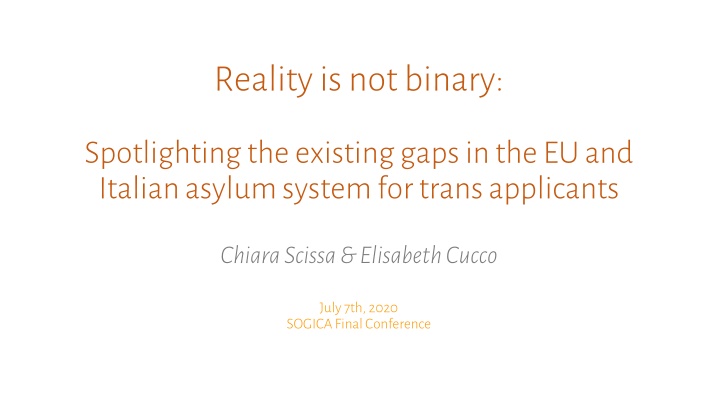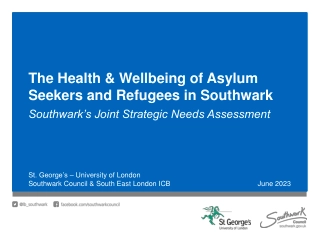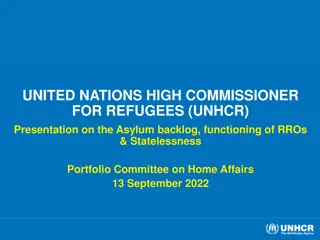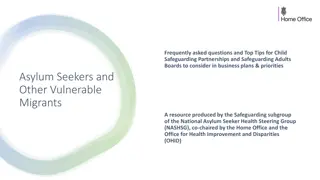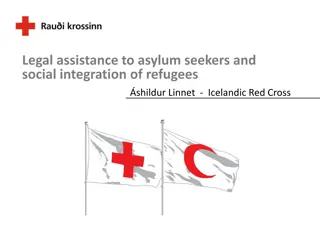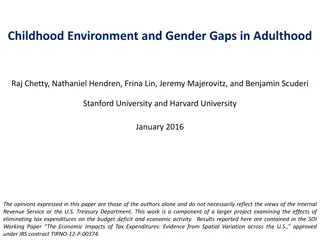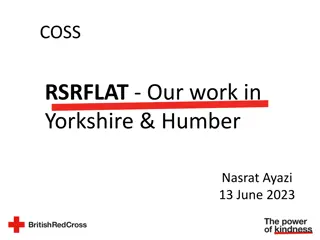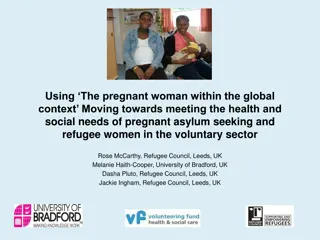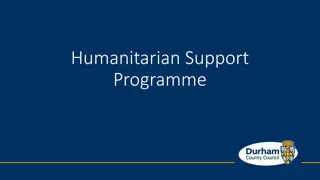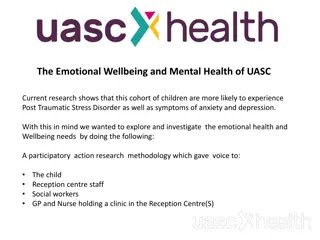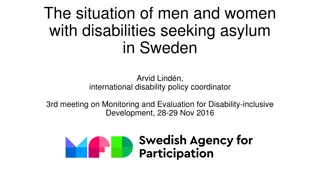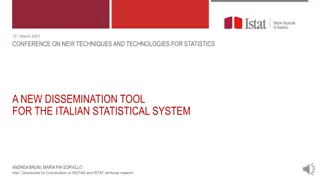Spotlighting Existing Gaps in EU and Italian Asylum System
Regulatory gaps in EU asylum system for trans applicants are revealed, impacting human rights and recognition of vulnerability. Lack of gender identity reference, no trans-sensitive approach, and flaws in reception and integration systems are highlighted. Urgent reforms needed.
Download Presentation

Please find below an Image/Link to download the presentation.
The content on the website is provided AS IS for your information and personal use only. It may not be sold, licensed, or shared on other websites without obtaining consent from the author.If you encounter any issues during the download, it is possible that the publisher has removed the file from their server.
You are allowed to download the files provided on this website for personal or commercial use, subject to the condition that they are used lawfully. All files are the property of their respective owners.
The content on the website is provided AS IS for your information and personal use only. It may not be sold, licensed, or shared on other websites without obtaining consent from the author.
E N D
Presentation Transcript
Reality isnotbinary: Spotlightingthe existinggaps in the EU and Italianasylumsystem for trans applicants Chiara Scissa & Elisabeth Cucco July7th, 2020 SOGICA FinalConference
Part 1: Regulatoryflawsatthe EU level CEAS reveals notable regulatory gaps with drastic effects not only on the lives and human rights of those left behind, but also on States understandingofcurrentmigrationchallenges None of the founding Treaties make comprehensive reference to gender identity,genderexpression,andsexualorientation. Although Article 21(1) of the EU Charter prohibits any discrimination based on any ground such as sex [ ] or sexual orientation , it does not explicitly refer togenderidentity.
No recognitionof vulnerability Trans international protectionapplicantsare notincludedin anylists of vulnerablegroups (Reception ConditionsDir., QualificationDir., Return Dir.) No additionalhealthcareand psychologicalservice, no favourablestandard in case of detention, amongothers
No trans-sensitive approach To themappliesthe notionof safethirdcountry of origin(Art. 37 Asylum ProceduresDirective). Requirements: thereisgenerallyandconsistentlynopersecution,notortureorinhuman or degrading treatment or punishment and no threat by reason of indiscriminate violence in situations of international or internal armed conflict Laws providing protection from persecution; observance of the ECHR and/or the International Covenant for Civil and Political Rights and/or the United Nations Convention againstTorture; respect for the non-refoulement principle; effective remedies against violations of those rights and freedoms.
Regulatorygaps in EU reception system Reception Conditions Dir.: Member States shall take account of the circumstances of vulnerability as well as of gender- and age-specific concerns, when housing is conferred to applicants whose international protectionrequesthasbeenmadeatthebordersorintransitzones. Trans-sensitive approach to be mainstreamed in all CEAS instruments, withoutexceptionsorlimitations
Regulatoryflawsin EU integrationsystem Employment Art. 15 Reception ConditionsDir. provides for the right to seek employment and Member States should ensure (trans) international protection applicants the access to the labour market (EU-citizens preference) Education Art. 16: Member States mayallow access to vocational training Social inclusion No specificprovisionsin the CEAS; sporadicreferencesin soft-lawdocuments The already limited efficaciousness of these provisions may be further restricted in caseoftransapplicants,duetotheirinherentdifficultyinfindingajobwithpersonal datathatdonotreflecttheirgenderidentity.
Part 2: Reception conditionsof trans asylum seekers and refugees in Italy ISSUE 1: Severe impacts on trans applicants In Italy, asylum seekers and refugees are accommodated in SIPROIMI (refugees and unaccompanied minors) or in CAS (all asylum seekers), accordingtotheirsexregisteredatbirth Consequentissuesfortransrefugeesandasylumseekers: 1) Double discrimination in the country of origin and in the reception centre 2) Breachofhumanrightspertainingtogenderidentity 3) Noeffectiveprotectionfromabusesandviolenceinthereceptioncentre
ISSUE 2: Gender affirmation Law 164/1982 requires a psychological evaluation and a consequent judgment by competent Ordinary Court to initiate the gender affirmation processviasurgeryand/ortochangepersonaldata Itimpliesinvasive processandlong-lastingwaitingperiodswithapossible slowdownoftrans integrationprocess This can lead to further difficulties in terms of social integration and employment In Italy, a total of 63% of trans interviewed declared to never/rarely be open about being trans, and the country is ranked 35th out of 49 countries forLGBTrights.
ISSUE 3: Hatespeech In Italy there is currently no prosecution of hate speech against trans persons Very recently a legislative proposal has been elaborated to extend the already existing MancinoLaw
To contrasttheseissues: Needto providead hoc reception centres for trans international protection applicantsto guaranteetheirphysicaland psychologicalintegrity Casa Caterina (Bologna) by MIT isthe uniqueexperienceof thiskindin Italy Needfor the Government to adopta hatespeech law Needto make the administrativeprocessof gender affirmationmore sensitive
Thank youfor yourattention! Contacts chiarascissa@gmail.com elisabeth.cucco@gmail.com
